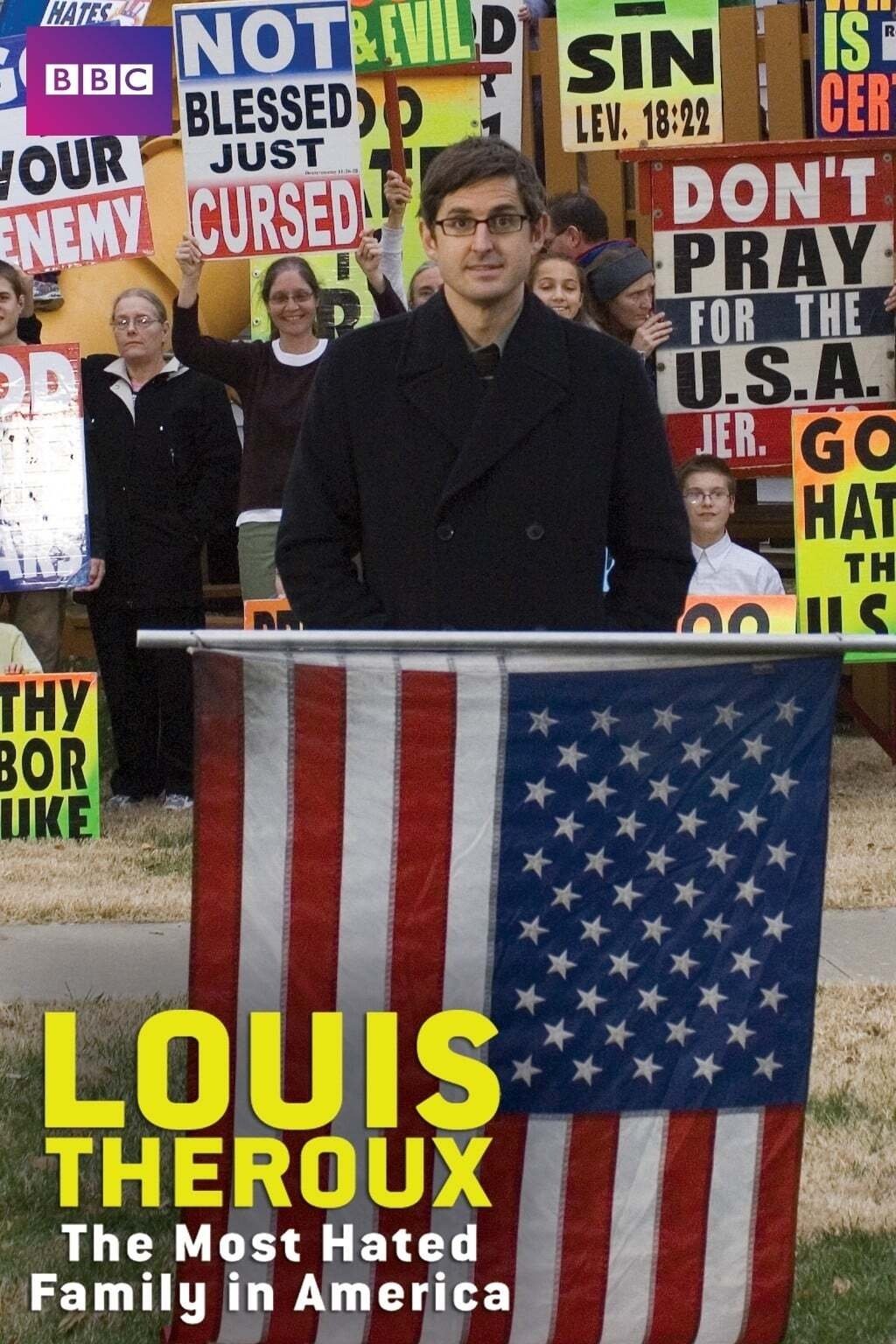Imagine a family so fiercely opposed to the very fabric of society that they become synonymous with hate. Imagine a group so ostracized that their presence sparks fear and disgust, their mere name a trigger for anger and condemnation. This is the reality of the Westboro Baptist Church (WBC), a small, radical religious group based in Topeka, Kansas, and the subject of Louis Theroux’s gripping documentary, “The Most Hated Family in America.” For decades, the WBC has been a lightning rod for controversy, their vehemently homophobic and anti-American views earning them a reputation as the most hated family in America. However, recent years have seen the group grappling with internal strife and a decline in public influence, leaving many wondering about the future of this notorious family.

Image: theposterdb.com
The Westboro Baptist Church, founded by Fred Phelps in 1955, is a self-proclaimed “Independent Baptist” congregation, but their beliefs are far beyond the traditional tenets of Christianity. The church’s core ideology centers on a belief that God is punishing America for its tolerance of homosexuality, leading them to engage in a shockingly brazen campaign of hate speech against LGBTQ+ individuals, soldiers, and anyone who deviates from their narrow worldview. This hateful rhetoric often takes the form of protests at funerals, public gatherings, and even schools, where they brandish hateful signs and chant slogans like “God Hates Fags” and “Thank God for Dead Soldiers.”
The WBC’s inflammatory tactics have garnered widespread condemnation and sparked both local and national backlash. Their protests have been met with counter-protests, often organized by concerned citizens and LGBTQ+ rights groups. Governments have implemented measures to restrict their activities, and law enforcement agencies have responded to escalating tensions. Theroux’s documentary captured the stark reality of the WBC’s actions, exposing their hateful ideology and the devastating impact it had on their victims. It showed the family’s unshakeable conviction in their beliefs, their uncompromising stance on moral righteousness, and the chilling reality of their rhetoric.
The WBC’s notoriety has been their fuel, attracting media attention and propelling their message into the public consciousness. However, the group’s influence has undoubtedly waned in recent years. The decline in their public influence can be attributed to a number of factors, including the changing social landscape, increased public awareness of LGBTQ+ rights, and the loss of their charismatic leader, Fred Phelps, who died in 2014. The church’s public image has been further damaged by internal disputes and the departure of several key members, leading to a fragmentation of the once monolithic group.
Despite its decline, the Westboro Baptist Church remains a potent symbol of intolerance and hate. The group’s unwavering stance on homosexuality, its relentless campaign of public protests, and its controversial messages continue to evoke strong reactions and spark debates about free speech, religious freedom, and the boundaries of acceptable expression. The church’s impact on society, despite its decline in numbers and visibility, is a testament to the enduring power of hate speech and the ongoing struggle for tolerance and acceptance.
The WBC’s story is not just a tale of extremism and hate, but also a study of human psychology and social dynamics. The group’s tightly-knit community, steeped in an ideology that offers a clear sense of right and wrong, provides solace and support to its members. However, the church’s isolation and its focus on condemning others creates a dangerous echo chamber, reinforcing their own biases and preventing any form of meaningful dialogue or critical reflection.
Theroux’s film offered a compelling glimpse into the inner workings of this notorious family. He engaged with the WBC members, allowing them to articulate their beliefs and providing a platform for their controversial views. While some may argue that the documentary granted the group legitimacy by giving them a voice, it also exposed the hypocrisy and the emotional emptiness that undergirded their hateful rhetoric. It shattered the myth of a righteous and righteous family, revealing the human fallibility and vulnerability beneath the facade of religious fervor.
The Westboro Baptist Church’s legacy is a stark reminder of the dangers of unchecked hate speech and the ongoing struggle for tolerance and understanding. The group’s decline, however, presents a glimmer of hope, suggesting that even the most deeply entrenched prejudices are not invincible, and that through public awareness, dialogue and open-mindedness, we can combat hate and foster a more just and equitable society.
The controversy surrounding the WBC raises important questions about freedom of speech, religious liberty, and the social responsibility of individuals and groups. It begs us to consider the line between expressing controversial opinions and perpetuating hate speech. It also highlights the importance of confronting prejudice and intolerance, and the need to create a society where all individuals are treated with dignity and respect, regardless of their beliefs or sexual orientation.
The Westboro Baptist Church’s story is a cautionary tale, a reminder of the potential harm of unchecked hate and intolerance. Their story also highlights the importance of engaging in meaningful dialogue, resisting the allure of simplistic solutions, and fostering a society where differences are recognized and celebrated rather than feared and condemned.
Theroux’s documentary “The Most Hated Family in America” is a testament to the power of storytelling to expose the truth and spark critical reflection. While the church may have declined in public influence, its legacy continues to serve as a cautionary tale about the dangers of radicalization and the importance of promoting peace, tolerance, and understanding. The WBC’s story, however, is not a closed chapter. As long as hate and intolerance find fertile ground, there will be challenges and opportunities to confront them, to seek understanding, and to strive for a more just and peaceful world.

Image: letterboxd.com
Louis Theroux Most Hated Family In Crisis






